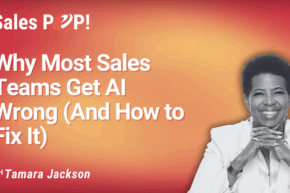Parental leave marks a transformative time for an employee, but it’s an equally pivotal moment for a sales organization. In a field defined by high stakes and hard-to-replace talent, the process of supporting an employee’s return isn’t merely an HR task—it’s a potent, revenue-driving retention strategy.
Sales leaders who master this transition gain a significant competitive edge. As one study highlights, a staggering one in four mothers quits within a year of returning to work, and replacing an experienced sales professional can cost up to 200% of their salary. For leaders, this makes a supportive, structured return a clear business imperative, not just a nice gesture.
Drawing on the insights of Karla Calinawan, founder of Fand Foundry, who has personally navigated three parental leaves while leading high-growth tech teams, here is a strategic guide for turning retention into a sustainable advantage.
The New Fundamentals of Supporting Caregivers
Successful reintegration hinges on three core principles: empathy, flexibility, and shared accountability.
1. Embrace Empathetic Leadership
The employee who returns is not the same person who left. Their priorities, capacity, and perspective have shifted—and that’s a powerful asset if managed correctly.
- Acknowledge the Transformation: Leaders must recognize that returning to work is a significant life transition, often a “marathon, not a sprint.” You can’t simply slot them back into their old routine.
- Adjust Expectations: Be prepared for a necessary ramp-up period. Encourage a gradual rebuilding of their pipeline and workload. Normalizing fluctuating capacity prevents the pressure to “hyper-perform” that often leads to burnout.
- Train for Trust: Equip managers with the tools to conduct open and honest check-ins. These conversations should go beyond task lists, focusing instead on what support the employee actually needs to feel effective and engaged.
2. Prioritize Flexibility and Outcomes
In the era of remote and hybrid work, flexibility has become the new currency of engagement for caregivers.
- Focus on Results, Not Face Time: Rigid schedules and metrics tied to “presence” are now a liability. Shift performance evaluation to outcomes and results, allowing parents the autonomy to manage unpredictable caregiving responsibilities.
- Personalize the Approach: A blanket policy rarely works. Some parents might be eager to jump back in, while others need a phased return. Tailor work hours, remote options, and workload to the individual’s needs, avoiding a one-size-fits-all solution.
3. Make It a Shared, Strategic Priority
The return-to-work process cannot be confined solely to the HR silo. Sales leaders and direct managers must take ownership of the reintegration.
- Leadership Involvement is Key: HR provides the foundational framework and policies, but day-to-day support, mentorship, and role clarification come directly from the sales organization.
- Clarify Financial Logistics: To prevent resentment or confusion, establish clear, published policies on critical sales issues—for instance, how revenue and credit are shared for deals that close while the primary owner is on leave.
Protecting Talent and Career Trajectories
A significant risk for organizations is the unintentional sidelining of returning parents.
- Fight the “Scale Back” Impulse: Leaders must communicate and demonstrate that parental leave does not stall a career. Actively mentor returning parents and clearly map out career pathways to show that advancement is still entirely possible.
- Normalize Support: Foster a team culture built on curiosity, not assumption. Instead of assuming a returning parent can’t handle a new challenge, encourage colleagues to ask, “How can I best support your return?” Simple acts, like a coffee chat to catch up, make a returning parent feel seen and valued.
Ultimately, investing in robust, empathetic support for employees after parental leave isn’t a cost—it’s an investment in institutional knowledge, long-term loyalty, and the resilience of your revenue engine. When you build a company where talented people can thrive through all stages of life, you attract and retain the best.
What is one specific policy your sales organization could implement next week to increase flexibility for your team?
Our Host
John is the Amazon bestselling author of Winning the Battle for Sales: Lessons on Closing Every Deal from the World’s Greatest Military Victories and Social Upheaval: How to Win at Social Selling. A globally acknowledged Sales & Marketing thought leader, speaker, and strategist, he has conducted over 1500 video interviews of thought leaders for Sales POP! online sales magazine & YouTube Channel and for audio podcast channels where Sales POP! is rated in the top 2% of most popular shows out of 3,320,580 podcasts globally, ranked by Listen Score. He is CSMO at Pipeliner CRM. In his spare time, John is an avid Martial Artist.








Comments